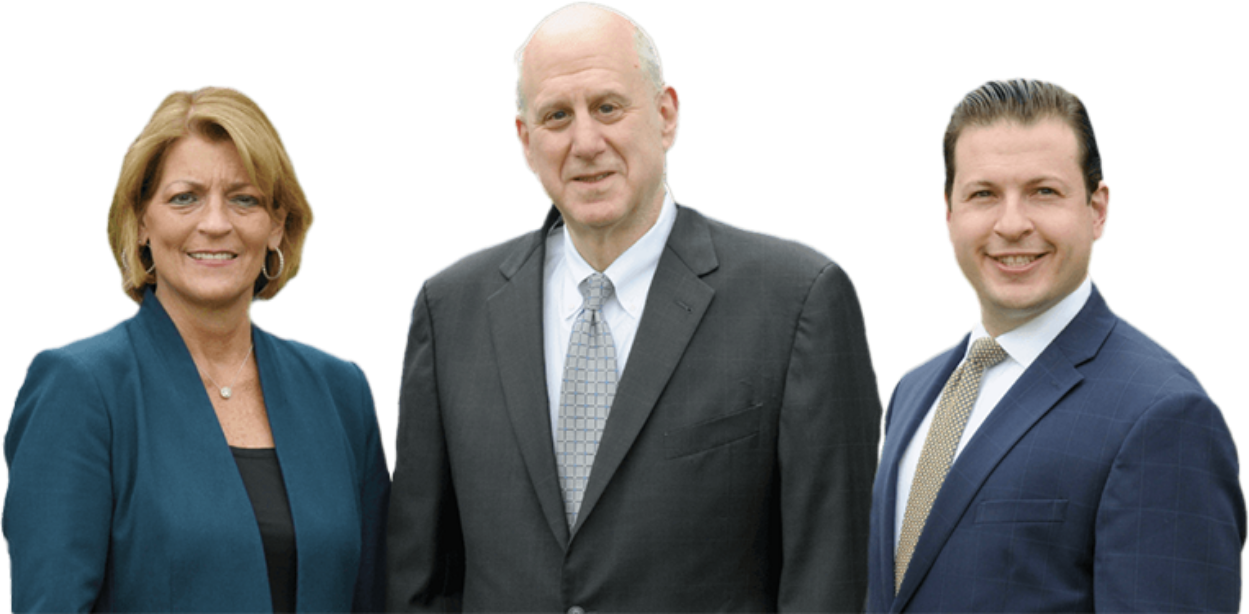Cheltenham, PA Bankruptcy Lawyer
If you find yourself moving credit card debt from one card to the other, avoiding calls from creditors, falling behind on car or mortgage payments, or losing sleep because you believe you are out of options, you may want to consider the benefits of personal bankruptcy. At Young, Marr, Mallis & Associates, we understand people do not want to hear that term, that the word holds a host of negative cogitations. Our sympathetic Cheltenham bankruptcy lawyers also understand the hopelessness that is associated with overwhelming debt. Bankruptcy can be a fresh start, and we will compassionately guide you through the process.
Bankruptcy law can be complicated, and you have many preconceptions, but at Young, Marr, Mallis & Associates, you can trust that we will help you understand every step of the process. Our bankruptcy attorneys have over two decades of experience and have dealt with thousands of individuals just like yourself. Whether you need Chapter 7 or Chapter 13, our Cheltenham bankruptcy lawyers are committed to helping you out of your financial hole. Call Young, Marr, Mallis & Associates, at (215) 701-6519 to speak with an attorney. Your initial consultation is completely free.
Filing for Bankruptcy in Cheltenham
Bankruptcy is a powerful tool to help you eliminate or reorganize your debt, making your finances manageable again. We will take the time to review your situation and evaluate your income, assets, and liabilities to determine if bankruptcy is the best option. If, after careful consideration of your concerns and goals, you decide bankruptcy is the best route for you, we will discuss the best type of bankruptcy for your case.
Most individuals in Cheltenham will file for Chapter 7 or Chapter 13 bankruptcy. The most beneficial chapter will depend on the details of your situation and, to some extent, your ultimate financial goals.
Chapter 7 Bankruptcy in Cheltenham
Chapter 7, also known as “liquidation” or “no-asset” bankruptcy, is generally for individuals with lower incomes, limited assets, and debt that is primarily unsecured debt. If you qualify, Chapter 7 will eliminate the majority of your debt in five to six months.
One of the biggest fears with Chapter 7 is that you will lose your car, house, or other personal property. While it is true that you may have to sell a portion of your property to satisfy your creditors, in the vast majority of cases, that is not required. The Bankruptcy Code provides several protections that we can use to help you except certain assets from liquidation so that you can keep them. Before we file your Chapter 7 case, we will carefully evaluate all of your property, working to protect most if not all of it. In most Chapter 7 bankruptcies, there are no assets available to sell. However, should you have too many assets to protect, we may advise filing for Chapter 13 instead.
All debt falls into two categories in bankruptcy: dischargeable or non-dischargeable. The vast majority of your liabilities should be dischargeable, including medical bills, credit card debt, and personal loans. Non-dischargeable debt includes some very specific types of obligations such as certain taxes, student loans, criminal restitution, child support, alimony, homeowners association or condominium fees, and personal injury liability from drunk driving accidents. It is important to note that any debt incurred within the 90 days before filing Chapter 7 may not be dischargeable and can be disputed. At Young, Marr, Mallis & Associates, we will help you understand what debts are dischargeable.
Chapter 13 Bankruptcy in Cheltenham
If you do not financially qualify for Chapter 7, or if your goals require an alternative to debt elimination by itself, filing for Chapter 13 may be in your best interests. Chapter 13 allows you to reorganize your debt, potentially paying it all back or discharging a portion of it.
To fully understand how Chapter 13 works, it is necessary to know how debt is classified. As stated, your debt is separated into two distinct groups: dischargeable and non-dischargeable debt. While these distinctions work fine in Chapter 7, because Chapter 13 requires possible repayment, your debt is broken down further. Your debt is additionally categorized as secured, unsecured, or priority debt. Chapter 13 requires filing a bankruptcy plan that addresses each type of debt.
Secured Debt in Chapter 13
One of the main reasons people file for Chapter 13 is because they have fallen behind on secured debt and want to maintain possession of their property. Secured debt is debt attached to property you currently own. For most individuals, their secured debt consists of a mortgage on their home or a loan for their vehicle. Once you fall behind on payments, your creditor can legally take possession of the property through foreclosure or repossession. Filing for Chapter 13 will stop both of these actions. Through your bankruptcy plan, the money you owe for either your home or vehicle will be paid over three to five years.
Unsecured Debt in Chapter 13
Unsecured debt usually encompasses most dischargeable debt, including credit card debt, medical bills, and personal loans. You may be able to eliminate all or some of your unsecured debt in Chapter 13. Several factors will determine if you are required to pay back unsecured debt, such as your disposable monthly income and your non-exempt assets. We will thoroughly review your income and assets to help you understand what debts you will have to pay off.
Priority Debt in Chapter 13
Priority debt is non-dischargeable debt that must be paid through your bankruptcy plan. Priority debt includes taxes, alimony, and child support.
Call Our Experienced Cheltenham Bankruptcy Attorney for a Free Consultation
There are many benefits available through bankruptcy. Our Cheltenham bankruptcy lawyers will help you determine if bankruptcy is the answer to your financial problems. Call Young, Marr, Mallis & Associates at (215) 701-6519 to speak with an attorney. Your initial consultation is completely confidential and free.



























